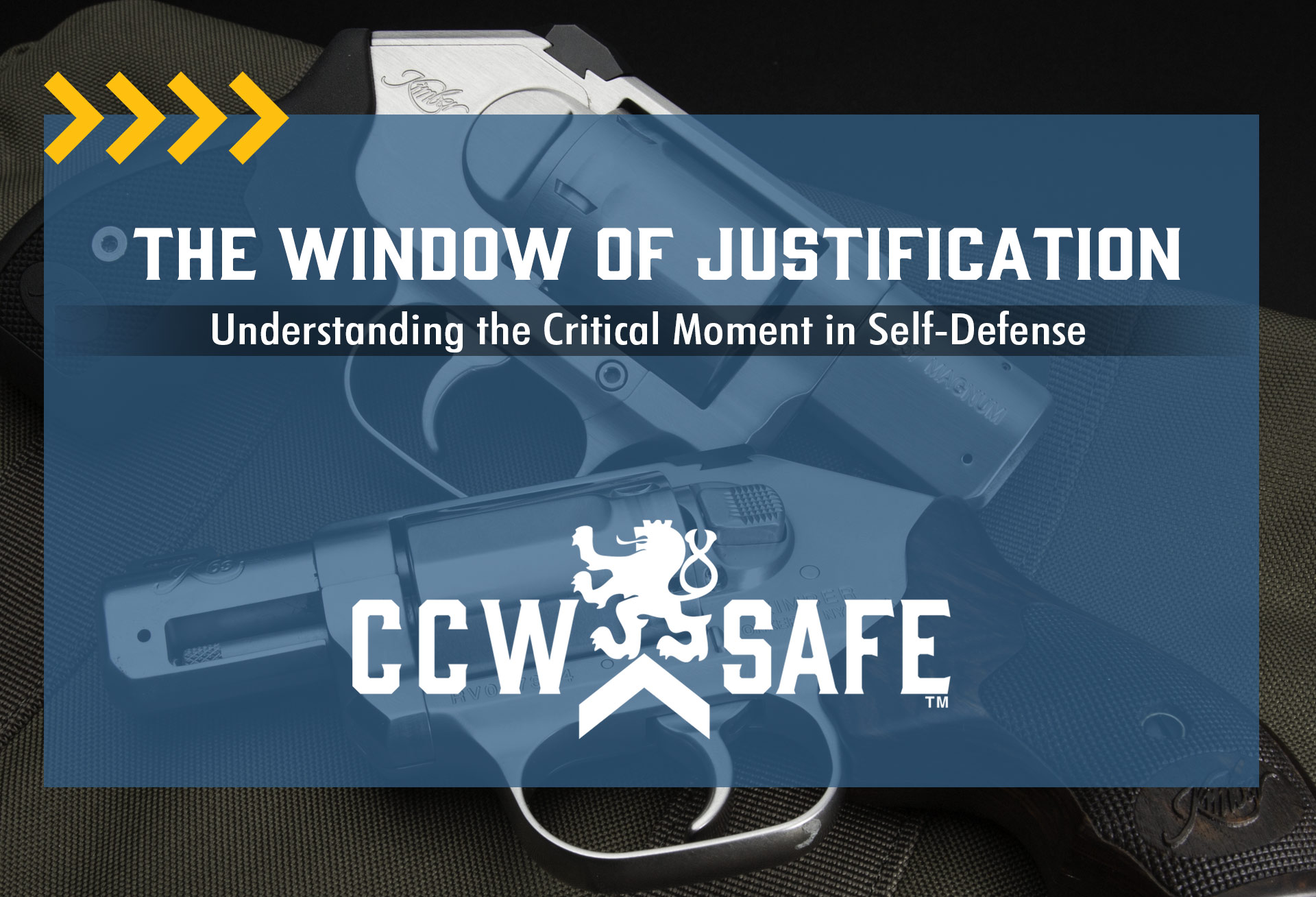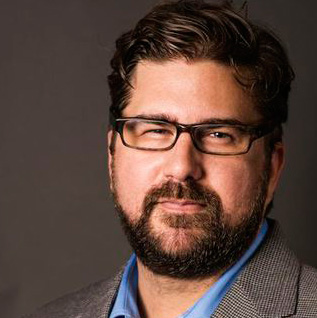
Posted on April 19, 2019
The Window of Justification
The Window of Justification
Understanding the Critical Moment in Self-Defense
Self-defense homicide is justifiable only when there is a reasonable fear of imminent death or great bodily harm. Don West, National Trial Counsel for CCW Safe and veteran criminal defense attorney, says that, in the context of self-defense, “imminent means ‘right now,’ and you feel reasonably that if you don’t do something to stop it, you’re going to be injured or killed.” In most of the self-defense shootings that we have examined, that critical moment — that “right now” as West describes it — is precariously short.
Gary Eastrige is a retired homicide detective who now serves as CCW Safe’s Critical Response Coordinator. Eastridge describes this period of time when deadly force is justified as a window that opens and closes during an encounter. “It’s a clearly defined window in the law,” Don West agrees. “If you are outside that window because it is too soon or too late, regardless of how imminent that threat was at one point in time, then you’ve gone outside the parameters of the law, and you’ve committed a crime.”
In our series The Four Elements of Self-Defense, we explored a number of cases that help bring this point into sharp focus.
Shot Too Soon
Michael Dunn shot 17-year-old Jordan Davis at a Jacksonville, Florida gas station after a heated argument. Dunn parked next to a red Dodge Durango and waited while his fiancee entered the store to buy snacks. While waiting, Dunn asked the teens in the Durango to lower their music. Davis, sitting in the rear passenger seat became enraged and started yelling at Dunn. According to Dunn’s testimony, Davis issued threats and produced an object that looked like the barrel of a gun. Dunn retrieved his pistol from the glovebox and fired several shots, striking and killing Davis. No gun or object resembling a gun was ever found.
Because the investigators found no weapon, it’s unlikely Davis ever posed an imminent threat to Dunn. The window of justification never opened, and Dunn shot too soon. After a mistrial on first-degree murder charges, a second jury convicted Dunn, and he’ll spend the rest of his life behind bars.
Shot Too Late
Oklahoma City pharmacist Gerome Ersland’s shot a robber named Antwum Parker who had burst into the pharmacy with an armed accomplice. A single piece of buckshot from Ersland’s Taurus Judge struck Parker in the temple, who collapsed and lay, incapacitated, in a pool of his own blood. At first, Ersland was celebrated as a hero for stopping an armed robbery, but when investigators reviewed the security footage, they discovered that, after Ersland chased off the second robber, he returned to the pharmacy, retrieved a second pistol, and fired additional shots into Parker’s prone body. At trial, the medical examiner testified that it was those final shots that proved fatal.
While Ersland fired the first shot at the critical moment, by the timehe fired the final shots, the imminent threat had been neutralized, and the window of justification had firmly closed. A jury convicted Ersland of first-degree murder.
Forced the Window Open
Byron David Smith caught two teens casing his house thanks to his four-camera security system. Smith crept down to his basement where he had set up a chair at the bottom of the stairs. There he waited with a pistol, a rifle, a book, water, and snacks. He issued no warnings. He never called police. When the intruders descended the stairs, Smith fired on them, hitting their legs and sending them tumbling to the basement floor where he shot both of them in the head. The teens were unarmed. Smith Later called his neighbor and claimed to have “solved the break-ins in the neighborhood.”
While homeowners have the absolute right to use deadly force to defend themselves against intruders, for the deputies who investigated this double homicide, it was clear that Smith — who had been the victim of a previous burglary — wanted the teens to break-in so he could exact revenge. Gary Eastridge says that when it comes to justifiable use of force, “you cannot force the window open.” But that’s just what Smith did, and a jury wouldn’t forgive him for it. They convicted him of first-degree murder.
The Critical Moment
During a motorcycle rally in Wilson, North Carolina, Steven Maddox — a CCW Safe Member — was physically attacked three times over the course of several minutes by a much bigger man named Kelly Wilkerson. The men were once members of the same motorcycle club but had recently had a falling out. Maddox escaped the first two encounters thanks to by-standers who pulled Wilkerson away. The third time Wilkerson attacked, however, Maddox was on his own. Maddox knew Wilkerson was known to carry weapons, and he feared for his life. After being tackled to the ground, Maddox fired five shots from his .44 revolver and managed to escape.
Although police arrested Maddox for murder, it took a jury only two and a half hours to acquit him on all charges. Don West, CCW Safe’s National Trial Counsel, consulted on Maddox’s legal defense. He said the shots Maddox fired were all within the window of justification: he didn’t fire before Wilkenson was a clear threat, and he resisted the temptation to shoot his attacker after he escaped the attack. Tactically speaking, “he almost shot too, late,” West says, “putting himself at greater risk by allowing Wilkerson to get too close, where he could actually get his hands on him.”
The Lesson for Concealed Carriers
The lesson for concealed carriers is that in a life-or-death self-defense scenario, the critical moment can be very short. Tactically, you know you have to be ready to act without a second thought when that critical moment comes. Recognizing when the window of justification opens, and when it closes — that takes judgement. You have to be honest with how you feel in your heart during a threatening confrontation. If you feel legitimate fear, you must be certain that it is a fear of imminent death or great bodily harm, otherwise you may act too soon. If you feel more anger than fear, it’s likely that the imminent threat has passed, and any use of lethal force will be too late. Most importantly, you can never force the window of justification open yourself — that is simply murder.
 |
SHAWN VINCENT- LITIGATION CONSULTANTShawn Vincent is a litigation consultant who helps select juries in self-defense cases, and he manages public interest of high-profile legal matters. If you have any questions for Shawn, or would like more articles like this, let us know belo |